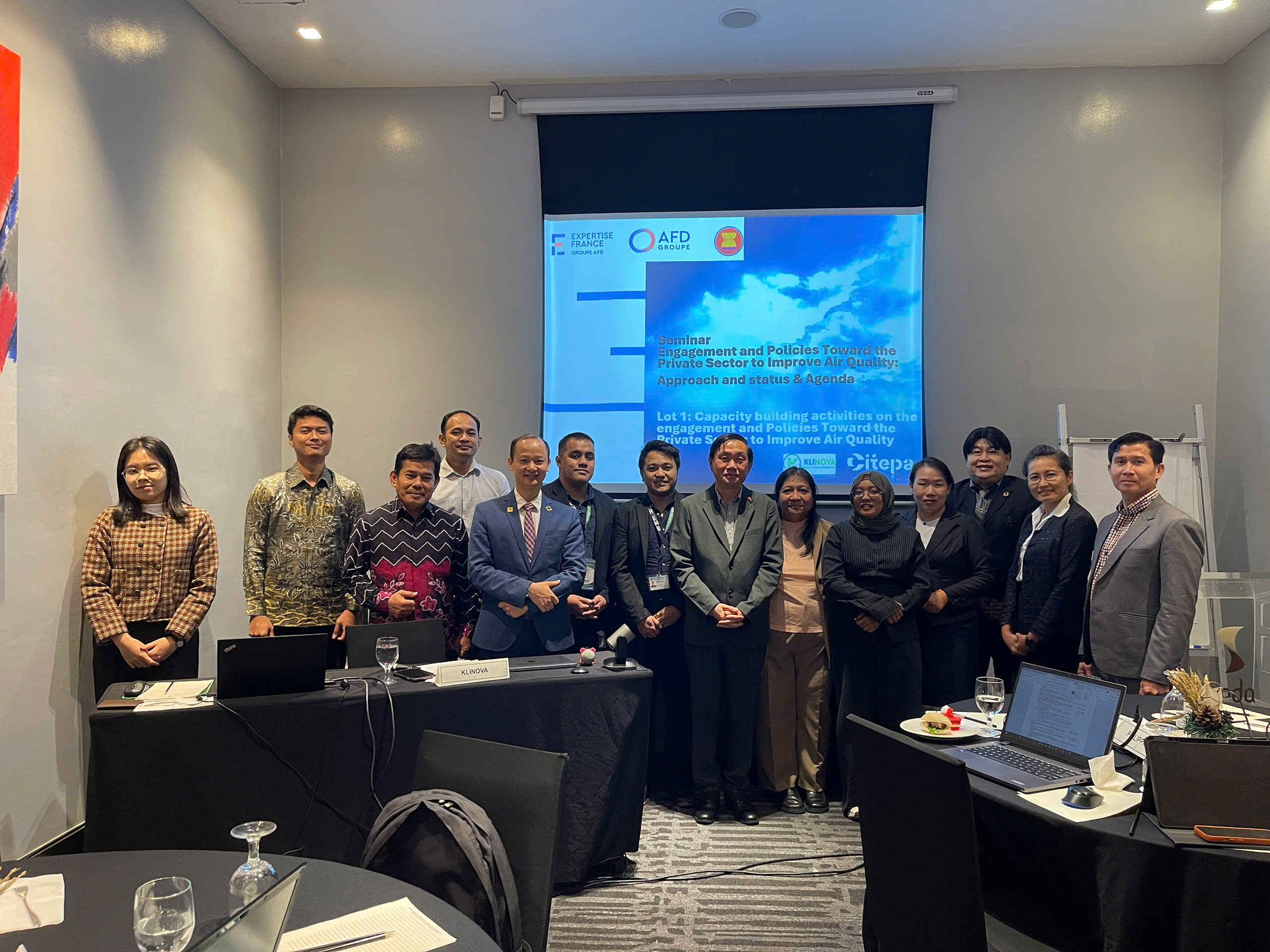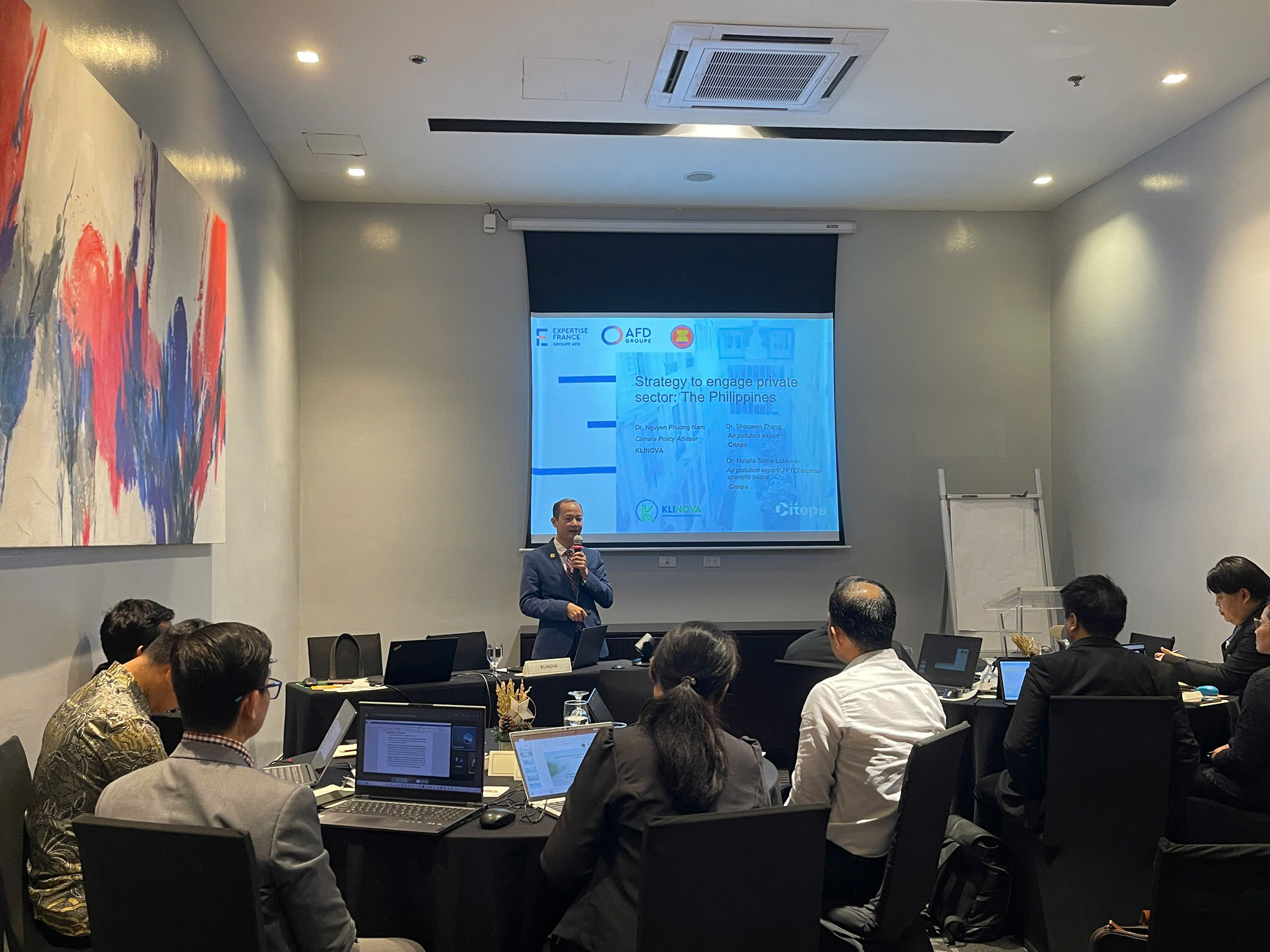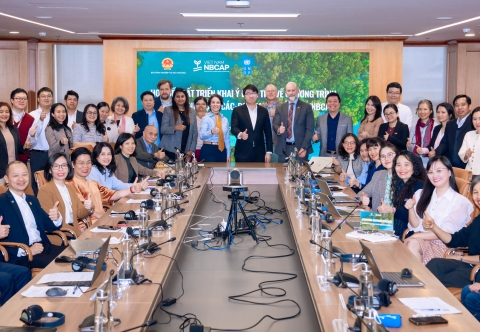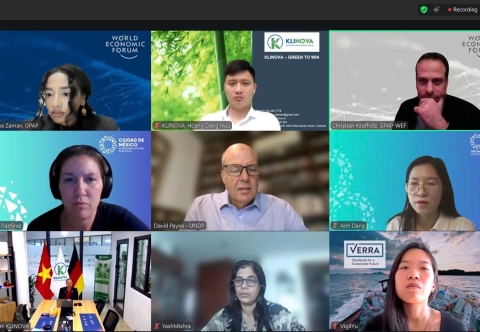On 12–13 November in Quezon City, Philippines, the seminar “Engagement and Policies Toward the Private Sector to Improve Air Quality” took place, marking an important step forward in addressing air pollution challenges across the ASEAN region. The event was organized under the ASEAN Air Quality Improvement Programme (AQIP), funded by the Agence Française de Développement (AFD) and implemented by Expertise France.

The seminar brought together representatives from ASEAN Member States, regional working groups such as AWGESC and ASOEN, as well as technical partners including Citepa and experts from KLINOVA. The sessions aimed to foster dialogue, share experiences, and strengthen strategies to enhance private sector engagement in air quality management efforts.
The first day opened with the presentation of the Philippines’ draft strategy, followed by a discussion session moderated by KLINOVA on mobilizing finance and business incentives. Thailand shared that despite existing tax incentives for environmentally friendly projects, private sector involvement remains limited due to the lack of clear government dialogue and concrete benefits for investors. Indonesia emphasized the need for blended financing mechanisms, as public budgets alone are insufficient to implement national strategies. Meanwhile, Viet Nam highlighted the emerging landscape of green finance through upcoming regulations supporting green loans and carbon credit benefits for businesses.

KLINOVA representative - Dr. Nguyen Phuong Nam presented at the Seminar.
As the discussion shifted to fiscal and regulatory measures that could be replicated across the region, delegates provided concrete examples. Thailand highlighted fuel tax incentives and policies encouraging investment in clean technologies. Malaysia shared insights from the Green Technology Financing Scheme (GTFS 4.0), which has supported numerous green initiatives. Although Indonesia has no specific regulations in place, it noted that environmentally friendly imports—such as electric vehicles from Viet Nam—have benefited from preferential trade arrangements.
Another key question explored how ASEAN and development partners can strengthen the investment pipeline for clean air projects. Delegates agreed that the most critical support lies in establishing clear government–private sector dialogue, offering appropriate tax incentives, supporting financial mechanisms, and enabling knowledge-sharing platforms that link emissions reduction with financial benefits.
The role of business associations, chambers of commerce, and development banks also received considerable attention. Thailand reported that several commercial banks actively finance carbon-free projects through green loans and sustainability-linked products, demonstrating the strong potential of the financial sector when guided by coherent policies. However, barriers remain—particularly the question of what businesses gain when investing in environmental projects such as air quality monitoring or pollution control. Delegates agreed that private companies will only participate when benefits are clearly defined, including financial returns, tax incentives, investment support, ESG opportunities, and government co-financing.
Challenges discussed included bridging the gap between scientific evidence on emissions reduction and financial mechanisms, limited knowledge of financing options among environmental practitioners, and the need for stronger government guidelines. The ASEAN Green Taxonomy was highlighted as a promising framework for classifying green projects, although member countries vary in readiness to apply it.
Another important part of the discussion centered on engaging industries and strengthening public–private partnerships. Thailand’s representative, Mr. Ittapol, emphasized opportunities in sectors that deliver co-benefits for both air quality and climate mitigation, such as PM2.5 and black carbon reduction. Strengthening MRV systems and establishing legal frameworks for voluntary emissions reduction were identified as essential steps, with models such as GIZ’s open-burning MRV project serving as valuable starting points. Building capacity for carbon projects and engaging high-level platforms were considered priorities for the future.
Mr. Nam So shared insights from smart city pilot initiatives across 15 cities in Malaysia and the Philippines, aimed at reducing traffic congestion and improving air quality through structured financing options. Despite formal arrangements for these co-pilot projects, countries like Lao PDR continue to face financial and feasibility constraints. As national authorities often lack the mandate to allocate funding directly, supporting cities to mobilize private investment becomes crucial.
The seminar concluded with strong consensus on the importance of clear strategies, innovative financing mechanisms, and regional cooperation to unlock private sector potential. The insights gathered will contribute to refining national strategies and ensuring alignment with broader ASEAN frameworks, paving the way for actionable policies and pilot initiatives. KLINOVA is proud to have contributed to these dynamic exchanges, reinforcing the company’s commitment to supporting sustainable air quality improvements across ASEAN through collaborative and evidence-based approaches.
Thuy Linh
 Meeting to propose the implementation of the Letter of Intent for the National Green Carbon Action Partnership Program (NBCAP)
Meeting to propose the implementation of the Letter of Intent for the National Green Carbon Action Partnership Program (NBCAP)
 Online Workshop on the Financing Roadmap for Plastic Action to 2030: Mobilizing USD 8.5 Billion for Viet Nam’s Circular Economy
Online Workshop on the Financing Roadmap for Plastic Action to 2030: Mobilizing USD 8.5 Billion for Viet Nam’s Circular Economy